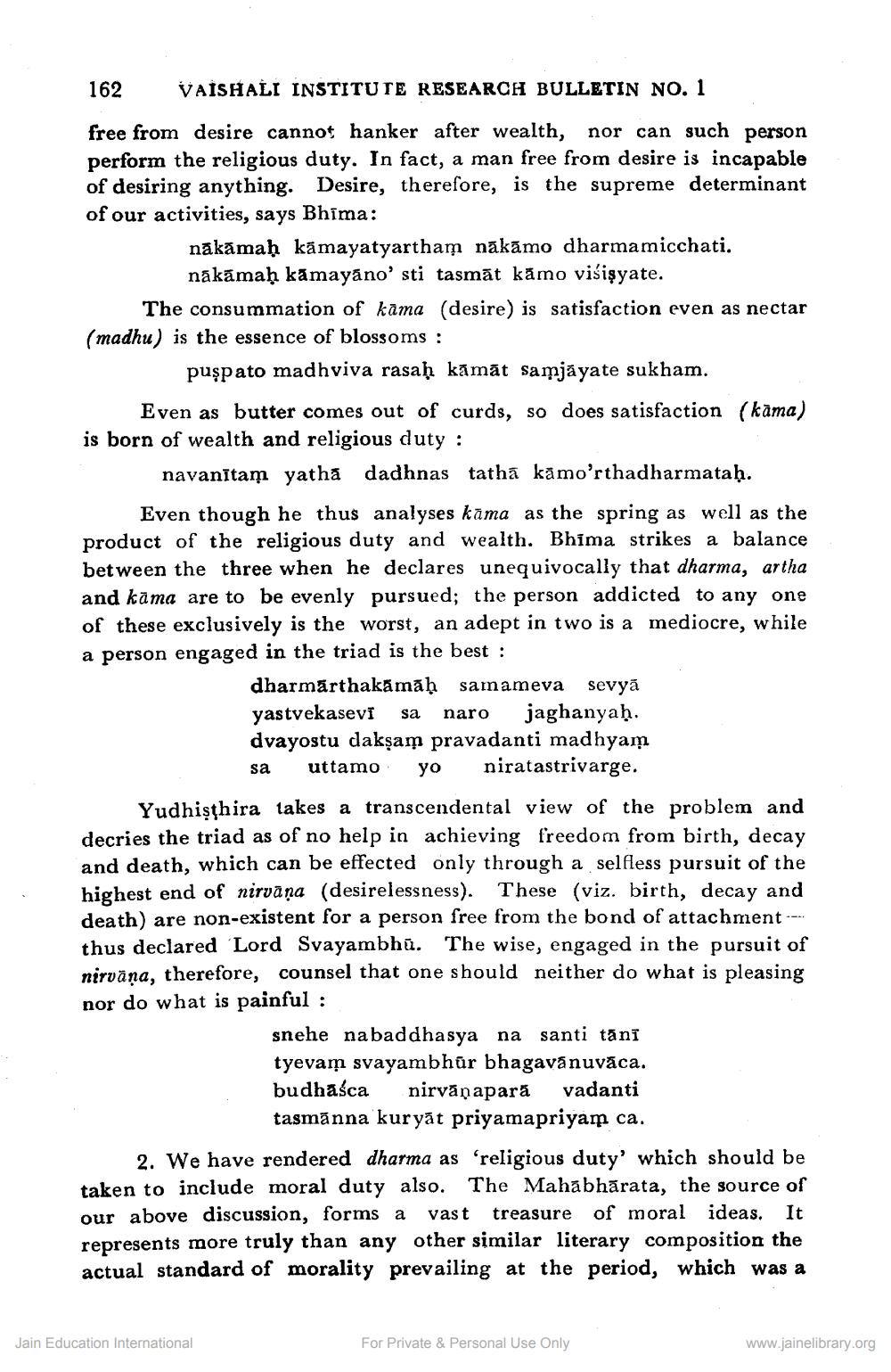________________
162
VAISHALI INSTITUTE RESEARCH BULLETIN NO. 1
nor can such person
free from desire cannot hanker after wealth, perform the religious duty. In fact, a man free from desire is incapable of desiring anything. Desire, therefore, is the supreme determinant of our activities, says Bhima:
nākāmaḥ kāmayatyartham nākāmo dharmamicchati. nākāmaḥ kāmayāno' sti tasmāt kāmo visiṣyate.
The consummation of kama (desire) is satisfaction even as nectar (madhu) is the essence of blossoms :
puşpato madhviva rasaḥ kāmāt samjayate sukham.
Even as butter comes out of curds, so does satisfaction (kama) is born of wealth and religious duty :
navanītam yatha dadhnas tatha kamo'rthadharmataḥ.
Even though he thus analyses kama as the spring as well as the product of the religious duty and wealth. Bhima strikes a balance between the three when he declares unequivocally that dharma, artha and kāma are to be evenly pursued; the person addicted to any one of these exclusively is the worst, an adept in two is a mediocre, while a person engaged in the triad is the best :
dharmarthakāmāḥ samameva sevyā yastvekasevi sa naro jaghanyaḥ. dvayostu dakşam pravadanti madhyam sa uttamo yo niratastrivarge.
Yudhisthira takes a transcendental view of the problem and decries the triad as of no help in achieving freedom from birth, decay and death, which can be effected only through a selfless pursuit of the highest end of nirvana (desirelessness). These (viz. birth, decay and death) are non-existent for a person free from the bond of attachmentthus declared Lord Svayambhu. The wise, engaged in the pursuit of nirvana, therefore, counsel that one should neither do what is pleasing nor do what is painful :
snehe nabaddhasya na santi tānī tyevam svayambhur bhagavānuvāca. budhaśca nirvanaparā vadanti tasmānna kuryat priyamapriyam ca.
2. We have rendered dharma as 'religious duty' which should be taken to include moral duty also. The Mahabharata, the source of our above discussion, forms a vast treasure of moral ideas. It represents more truly than any other similar literary composition the actual standard of morality prevailing at the period, which was a
Jain Education International
For Private & Personal Use Only
www.jainelibrary.org




